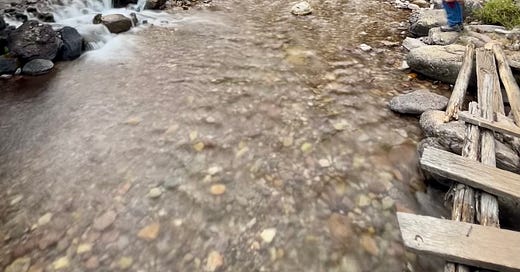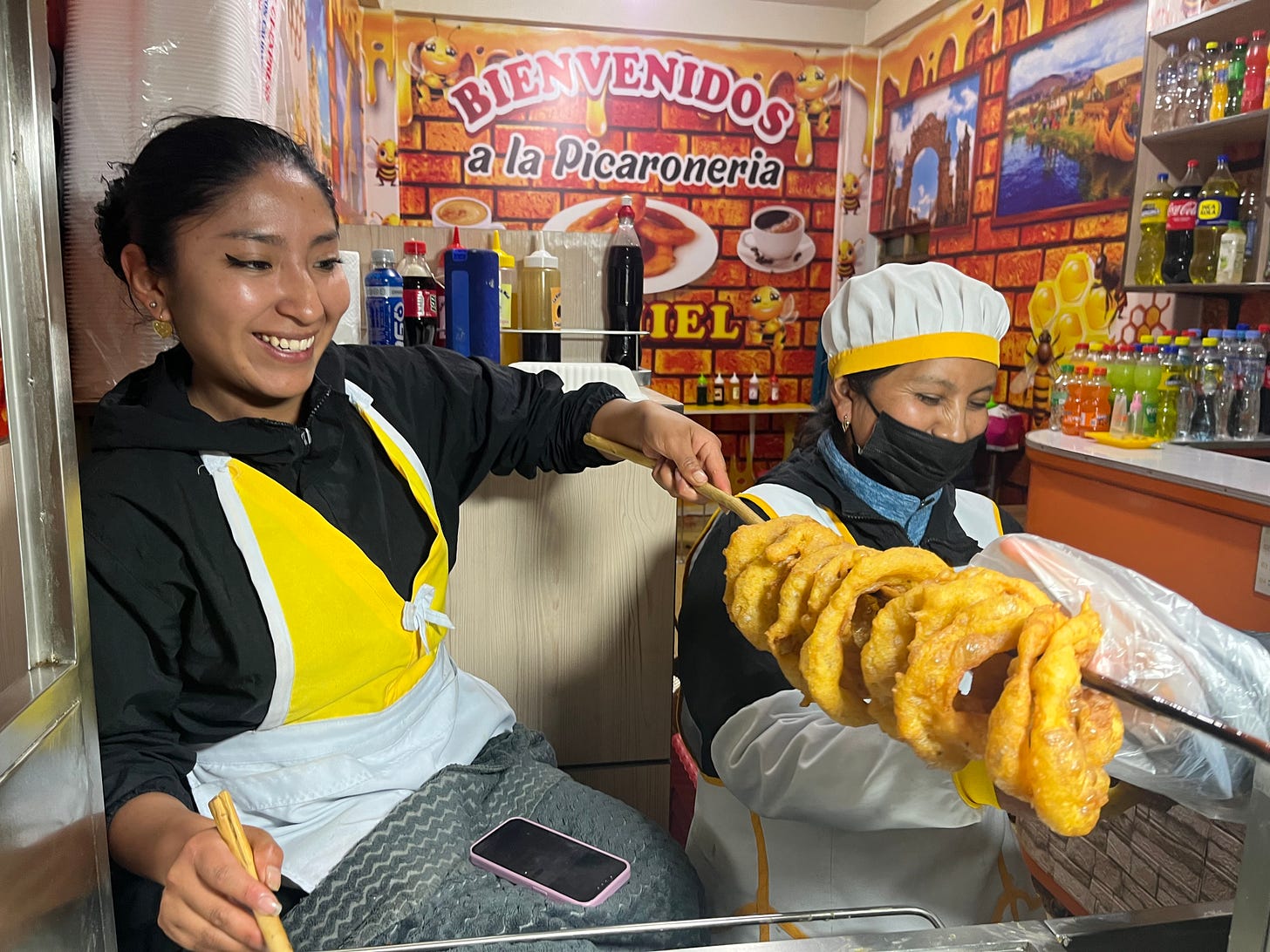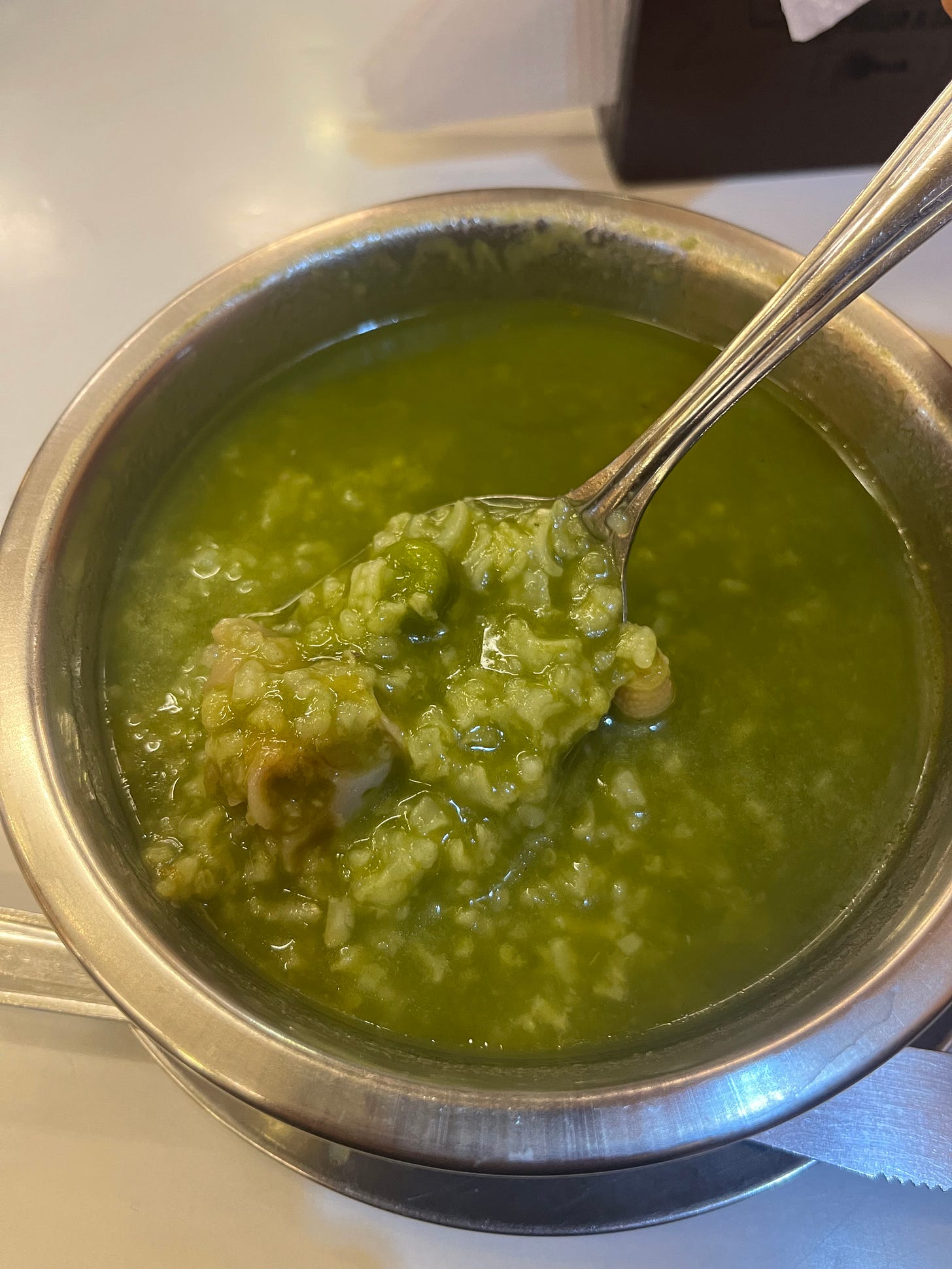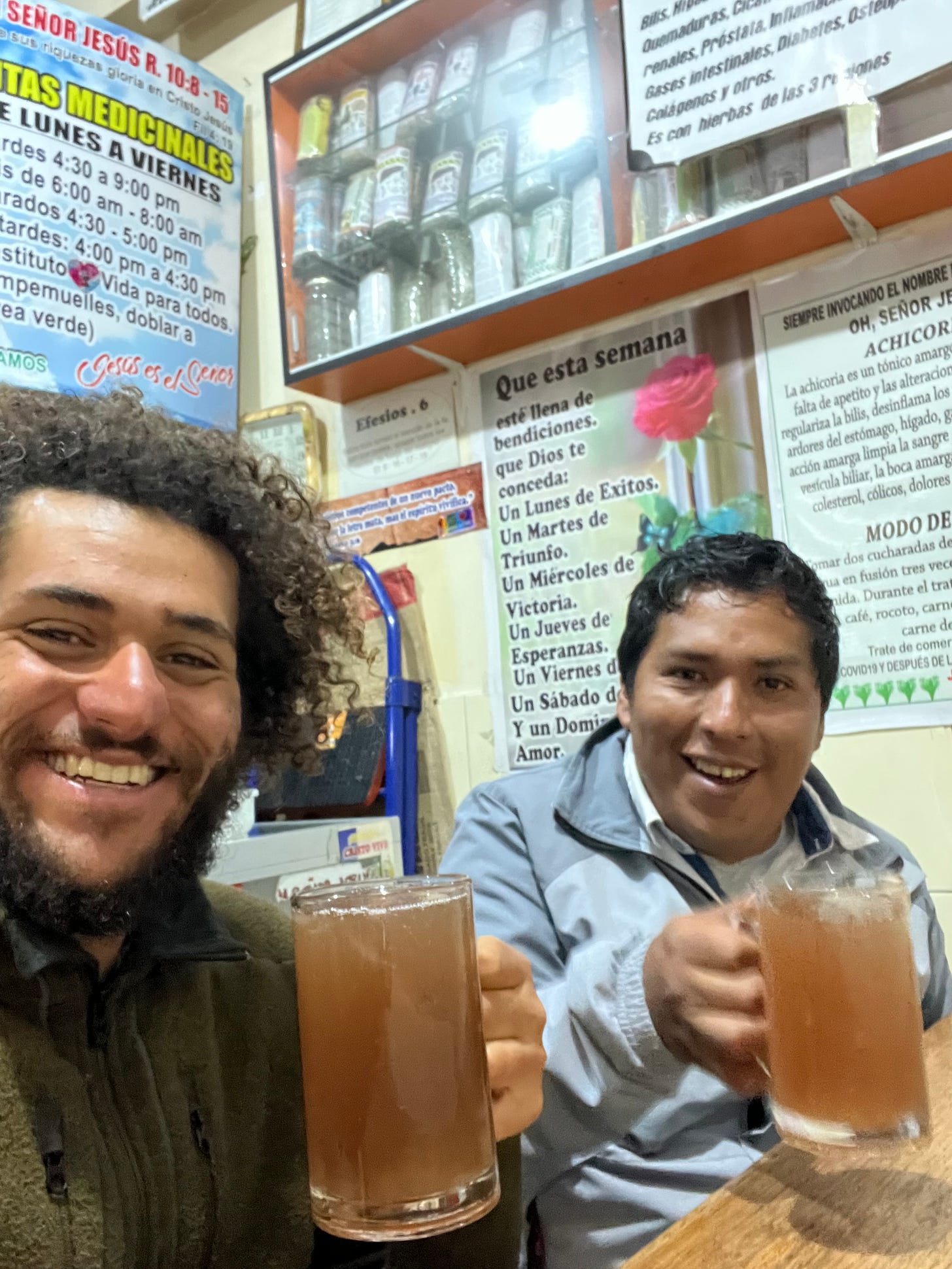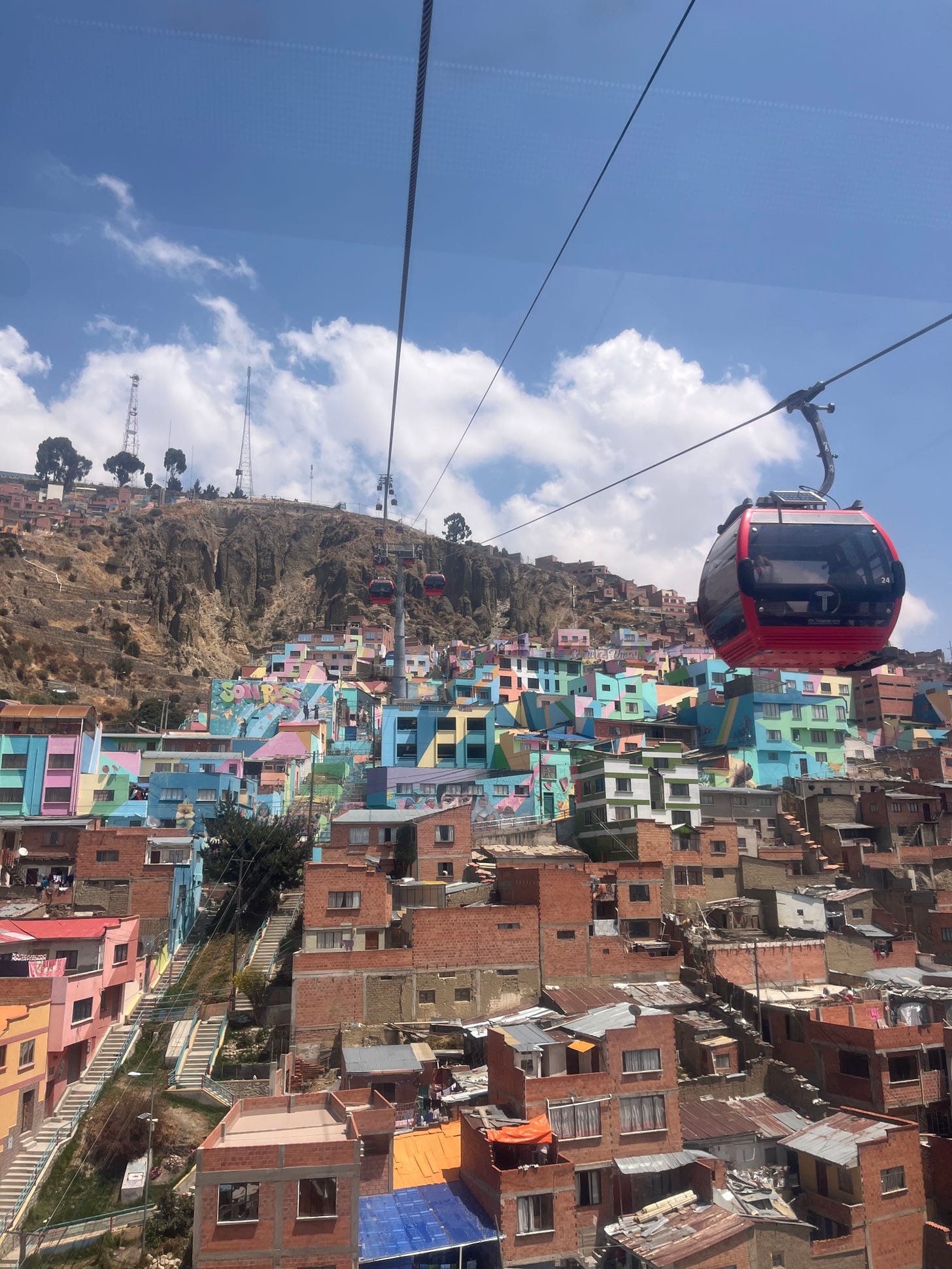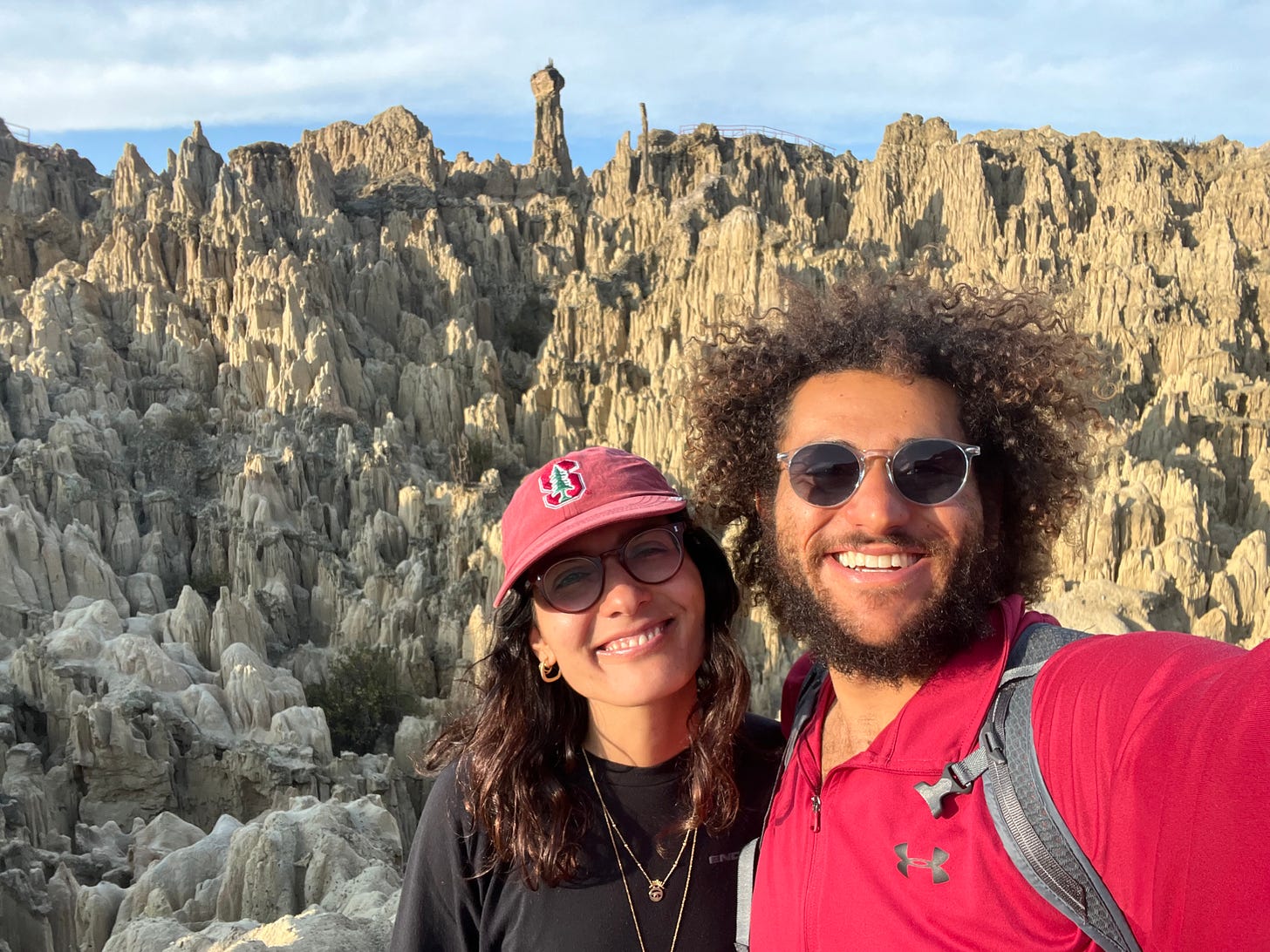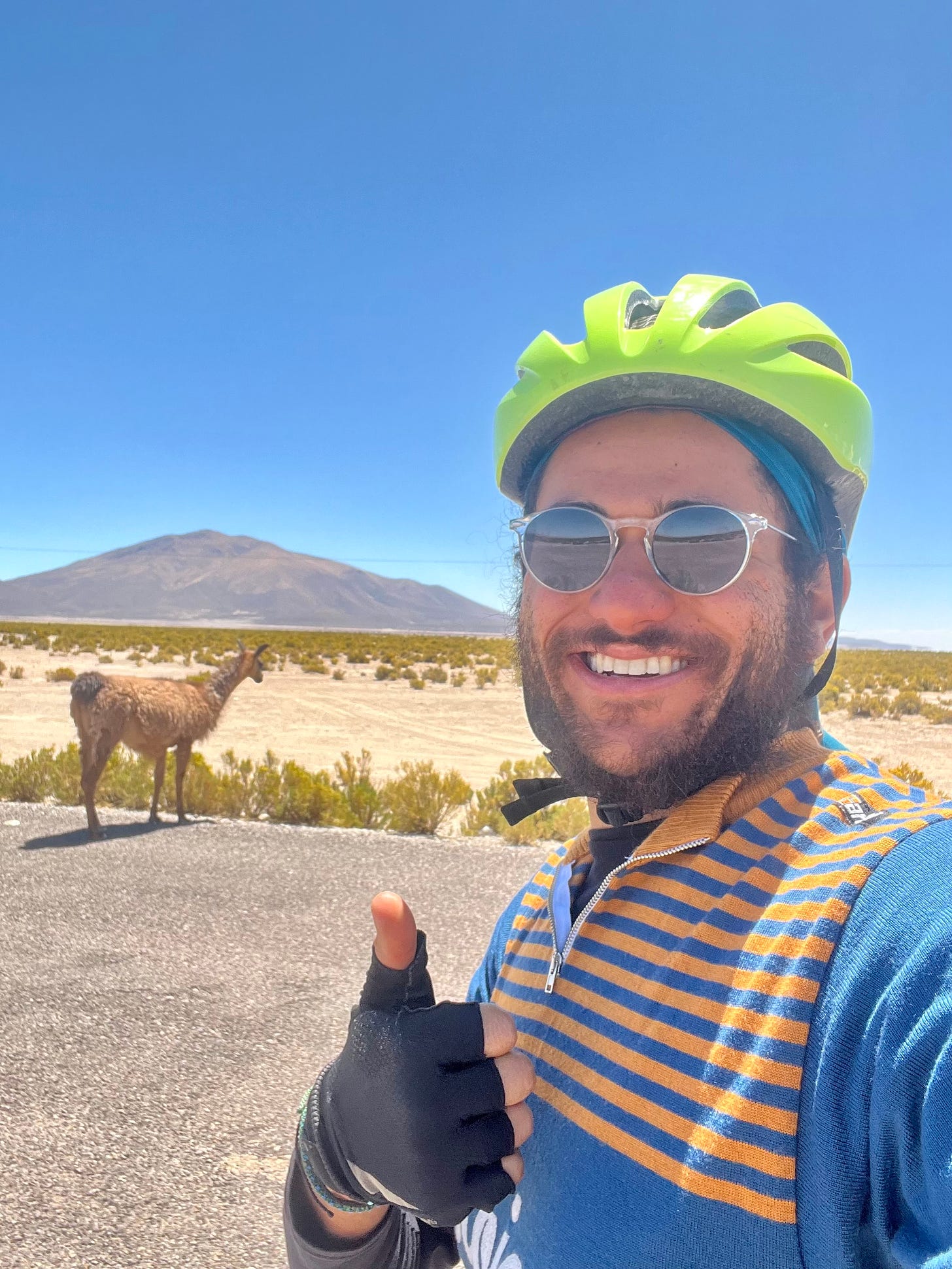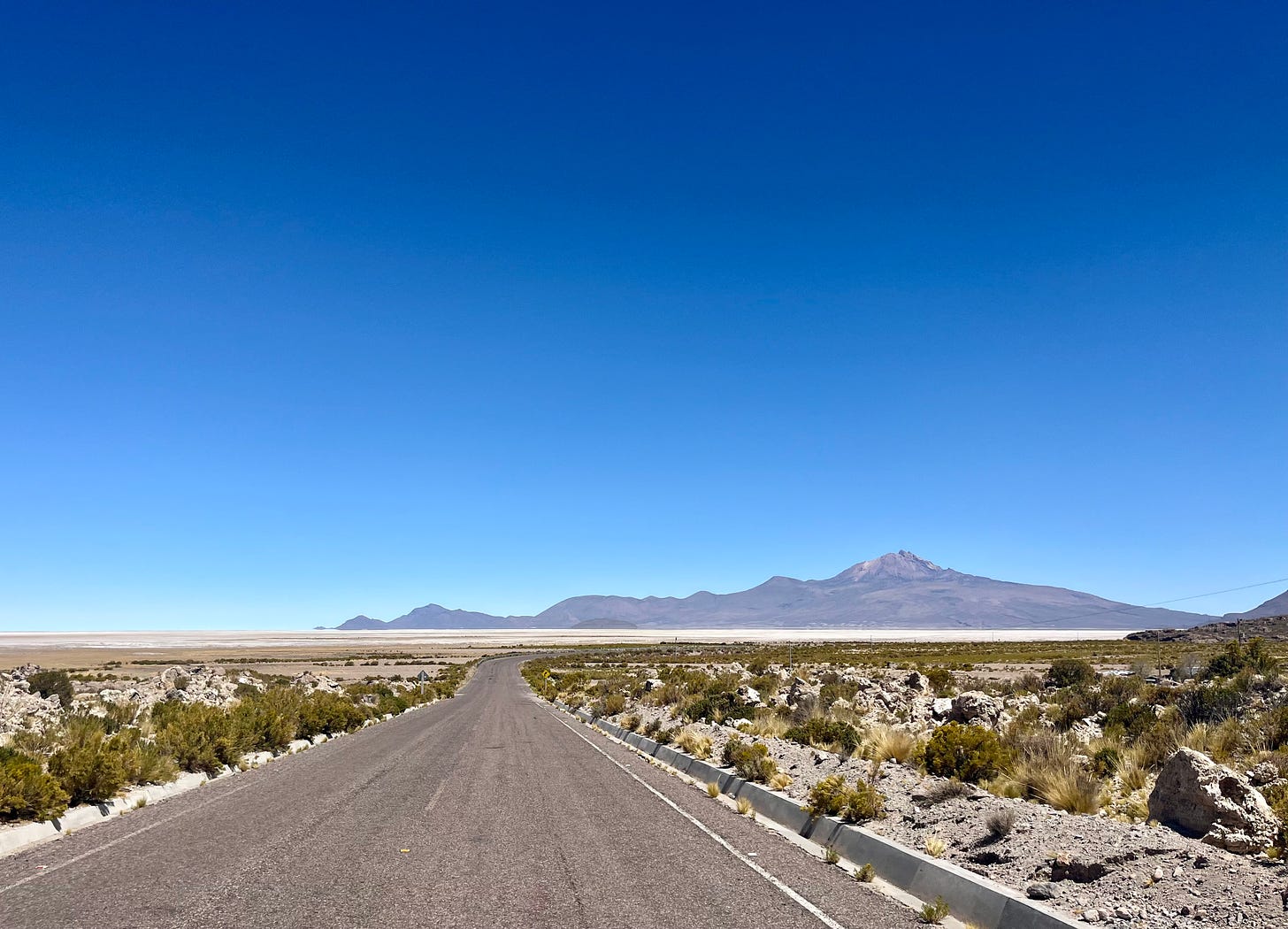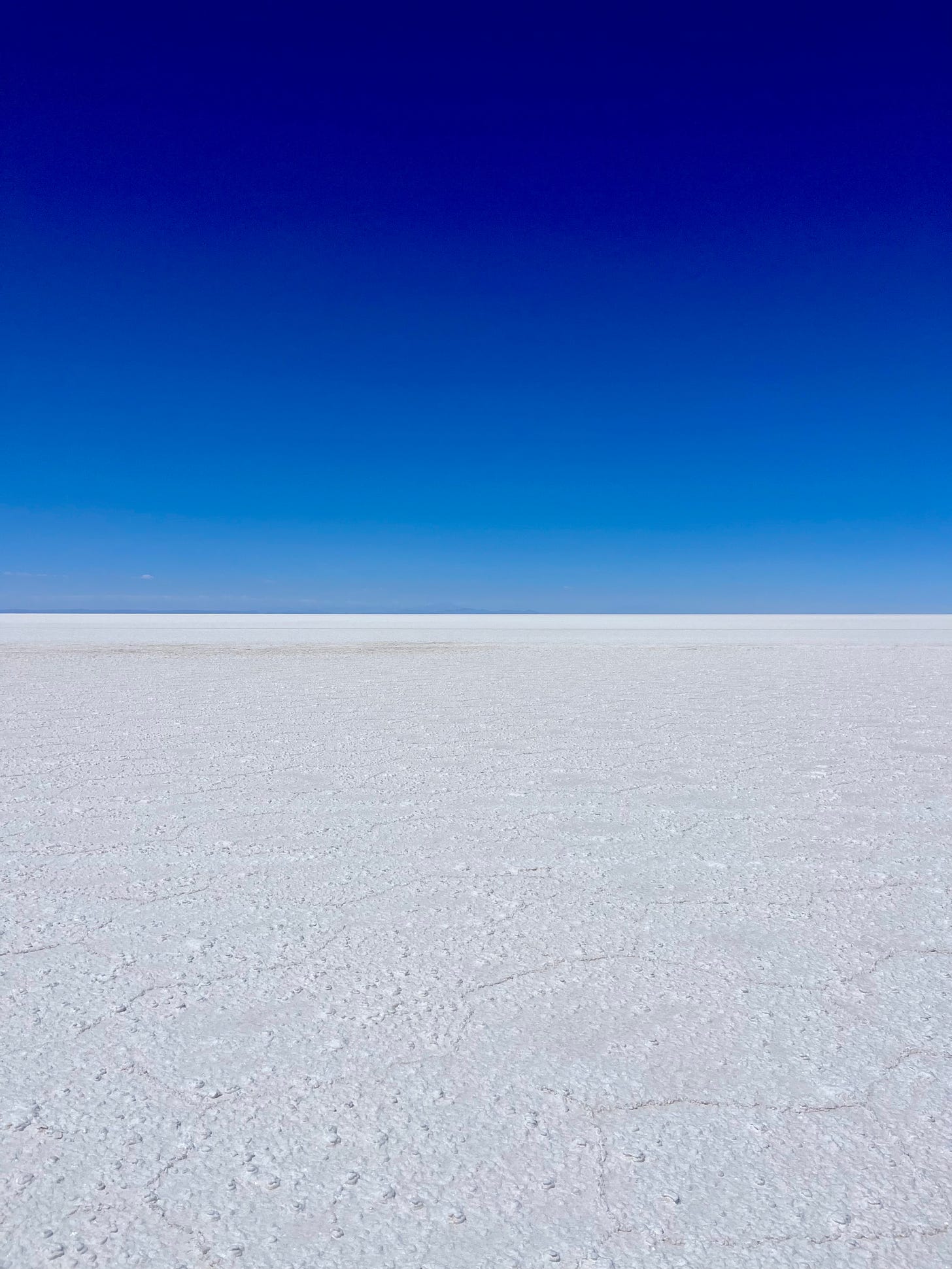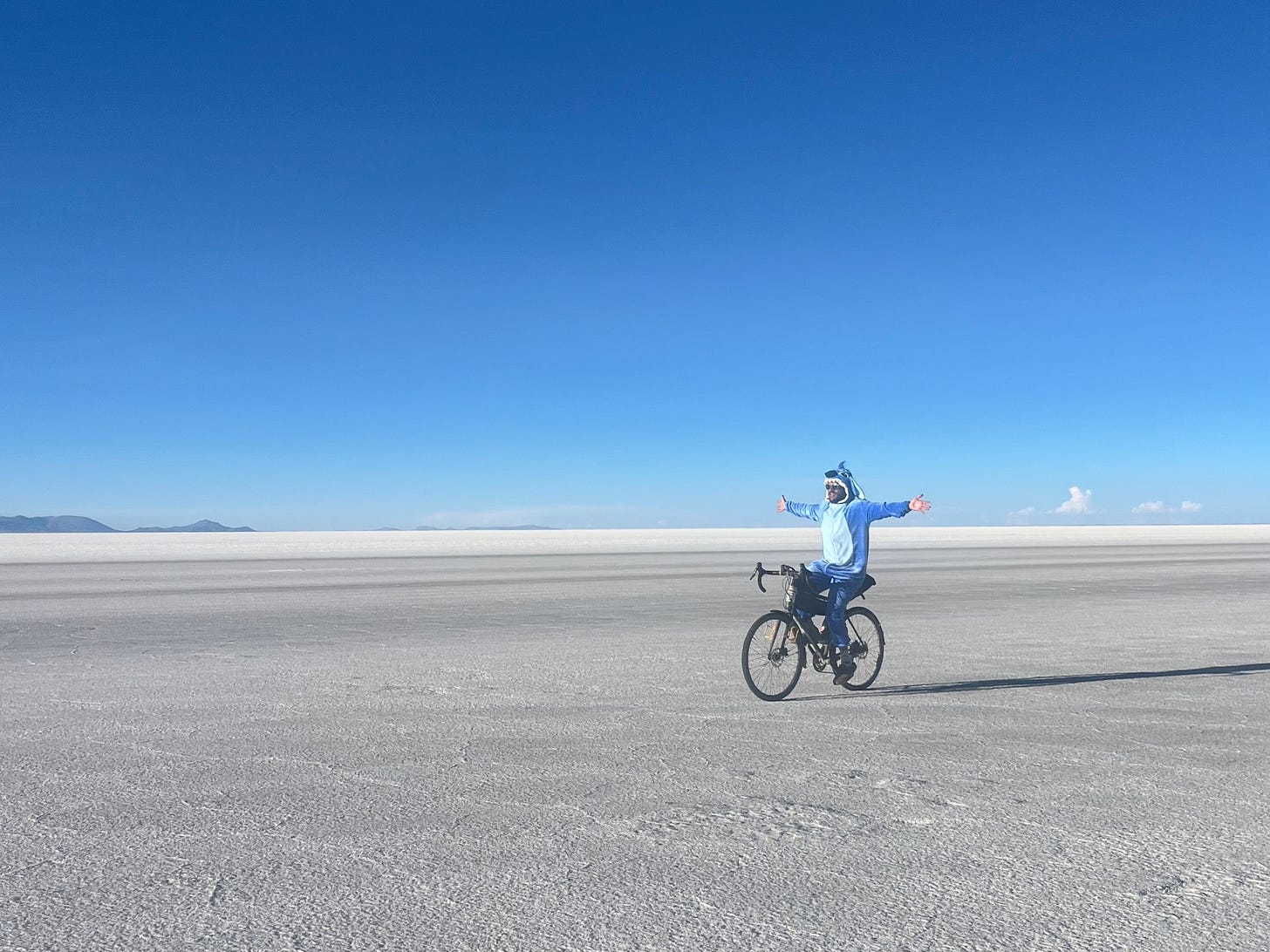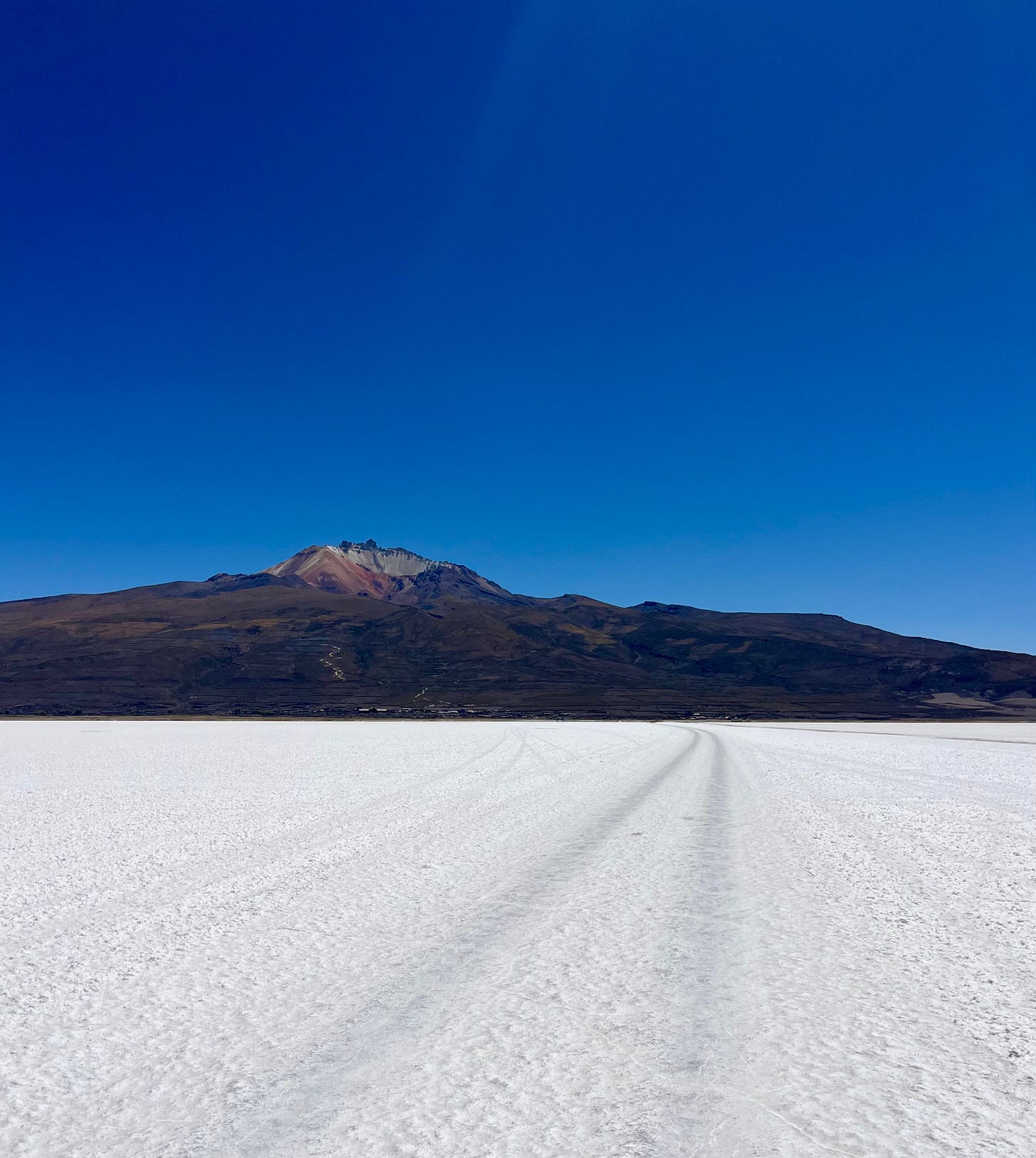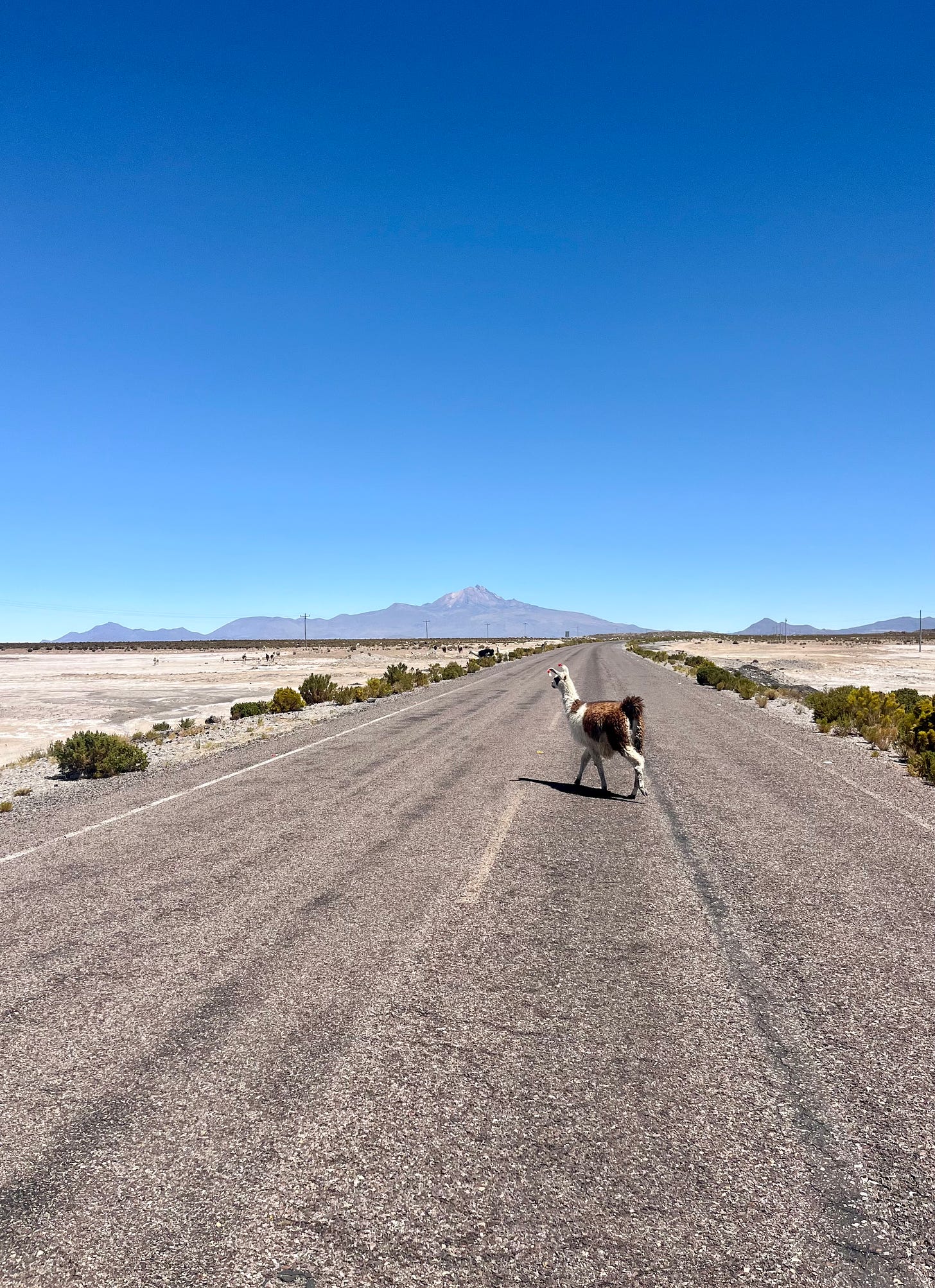Climbing into Cusco was one of the most challenging stretches of the whole trip (so far). As my Peruvian buddy Matias said: “getting from Lima to Cusco is tough enough in a car…good luck on the bike...”
Fortunately, we had our longest respite so far, where I was able to enjoy some hiking in the mountains. I opted to skip Machu Picchu to avoid the crowds and save some money, and instead went to the sacred valley to rest and recharge.
Wayra, my peaceful Andean guide, had an incredibly comforting energy and throughout my last hike I found myself opening up to him about things that were on my mind. The usual anxieties about the future, career, relationships…am I in the right place? Doing the right thing? On the right track?
“You think too much with your head”, he said to me. “You have another brain in your stomach. And when the two are out of balance is why you feel anxious…feel more, think less.”
“We were all connected to our mothers and the world first through our stomachs” he continues. “That was our first source of information, of intelligence...”
I reflect on his words, and realize how the western world rewards intellect. Our western institutions program us to over-index on the brains in our heads instead of the brains in our bodies. But, Wayra is right. I needed to reconnect more with my body and heart, and learn to rely on my intuition and my intellect in unison, rather than only the brain in my head. It’s the balance between the two that’s important.
Soon we left Cusco, and rode towards Lake Titicaca on the border with Bolivia. Our crossing into Bolivia marks roughly the halfway point of the journey to Ushuaia, and I thought that I would reflect on what are some lessons, reflections, what I want more of and less of so far:
More listening to my body, embracing the sides of the mountains rather than the top, connecting to more locals, more detours, more street food…(although, for my stomach’s sake- I’m not sure if I should do more or less of that last one…)
One of my most memorable meals so far had been in Puno, on the southern tip of Peru. It was a long ride into the city, a beautiful riding day in the saddle, but absolutely exhausting. After showering and catching my breath, it was time to sort out the rest day errands, the first of which: laundry.
I flag a taxi to a lavanderia in the center of Puno to avoid getting ripped off by our fancy hotel.
I chat with Wilfredo, my friendly taxi driver, and we realize he’s only one year my senior. It hits me how lucky I am to be able to do this adventure at my age, and how I had seen more of his country than he had.
“I would love to try local food.” I say to him after dropping off the dirty clothes. “Can we go to one your favorite spots and dinner is my treat. But, I want to go somewhere without a menu, and only locals.”
Puno is around 3,800 meters and a hotspot for tourists that want to see Lake Titicaca, and as we journey, I find myself getting more allergic to anything that smells touristy. Growing up in Egypt, I know that some of the touristy things are worthwhile, but more often than not are expensive crap. And it’s more fun to feel the local pulse and eat at markets, street stalls, and experience what the places we pass by are like for their own inhabitants rather than through the foreigner veneer. And with my darker skin, curly hair, and conversational Spanish, I often pass as Brazilian - which is close enough that I’m not flagged as a gringo.
Wilfredo and I go on a little food crawl across Puno, and we hit many of the items Matias said I had to try (thanks for the recommendations, hermano!). Starting with a green aguadito de pollo soup (a traditional chicken soup with cilantro and vegetables, which tastes incredibly similar to our Egyptian خبيزة or mallow), then some pollo a la brasa (rotisserie grilled chicken), followed by some warm emoliente around the corner, a traditional Peruvian herbal drink made from a mix of medicinal herbs, barley, flaxseed that’s served hot and known for its soothing and digestive properties.
And to top it off, we find some fresh out of the fry picarones — crispy fried doughnuts made from a mix of squash and sweet potato, drizzled with a rich syrup made from chancaca (a type of unrefined sugar). So good.
As we indulge on the side of the road, the bustling streets of downtown Puno come alive around us, filled with the vibrant aromas and sounds of local life.
Each bite tells a story of tradition, culture, and the unique flavors of Peru and is a special way to close my Peruvian chapter. It’s hard to believe it’s been a month here, but I know I’ll be back, Peru.
The following day we receive some unexpected news that there is a peaceful demonstration planned to reach La Paz and our tour leader decided that we’d be better off to get ahead of it just in case. And so we bus from Puno to La Paz, sadly forfeiting the few days of riding around the lake.
As some of the group are disgruntled with the change of plans and the extended time off the saddle, I decide to have a little fun on our group chat, and inject some levity by sending the following message:
Hello all,
I’ve decided to stay in La Paz, to join the march and complete the revolution... It’s been great riding with you. But, I’ve been assessing the situation and believe Bolivia needs a fresh, young leader. I’ve been practicing my Spanish, and am looking for a new job to pay for my next cycling trip. If my parents ask, please tell them I’m still riding.
Before we heard of the unexpected change of plans, I had mentioned to the riders that I was lucky to be expecting Özlem, my partner in crime, in La Paz and we were going to be there for a few days. And most of them remembered this and picked up on my sense of humor with the following messages:
“Bonne chance et bon courage mon ami!! We’ll miss you but understand that it’s your destiny. You’re perfect for the job!!”
“... Mark can I apply for minister of tourism post?! Make that minister of yoga... changed my mind”
But one rider I had roomed with a couple of times, Andy (73, Texas), who reminds me of Carl Fredricksen, the older gentlemen from Pixar’s Up with the square sunglasses, must’ve missed the joke:
“Dear Mark,
I can only wish you the best of luck! You will learn a whole lot more about life and yourself by staying here than riding to Ushuaia. Your sense of adventure should be pegged as well. Trying not to be condescending as someone who lived through the 1960’s be careful. Politics is a murky business. I am reminded of the (falsely) attributed quote of Winston Churchill, “If you’re not a liberal when you are 25, you have no heart.” Trying to solve the inequities of the world is truly commendable. The second part of the quote is, “If you’re not a conservative by the time you’re 35, you have no brain.” You need neither my advice nor approval and my sounding pompous and pretentious comes from being north of 70. But please try not to do anything from which you can’t recover. I hope you have a positive experience and again I wish you the best of luck!
- Andy”
Thank you, Commandante Andy. Sorry to disappoint you…
Özlem and I have a fun time exploring La Paz, and she notices a resemblance between Bolitiva and Ethiopia. And then I start to notice it too. Both countries have almost identical flags, tricolor rectangles, with red, yellow and green, in a ratio of 1:1:1. Black markets for dollars, good coffee, political instability, and a bit of socialist vibe…and both capitals are quite high, La Paz at ~3,600m and Addis Ababa at ~2,300m. And generally, both people have been quite welcoming and friendly. A few days earlier, Mike had forgotten his wallet in a taxi and the driver brought it back to our hotel an hour later. Not sure if that’d happen in Ethiopia though…as I still grieve getting pick pocketed in Addis a few years ago.
Where La Paz takes the cake, however, is in its unique public transport system. A network of cable cars that replaces the metro or bus system, and makes it an incredibly amusing way to get around the city.
The demonstrations turn out to be peaceful and uneventful, and we enjoy some good food and unique hikes in the lunar-like terrains around the city. I drop off Özlem to the airport to fly back to SF (thanks for coming!) and press on with the same cab to the altiplano or Bolivian highlands to catch the group as we head towards the Salt Flats.
The few days before and after the salt flats are stunning, quiet, dry, and so
llamazing…
The vastness of the highlands, and the simplicity of being on the bike everyday make me reflect on how little I need in life to be happy. I think of what Lao Tzu said on “health as the most important possession, and contentment the greatest treasure.”
Out here, surrounded by the emptiness of the altiplano and the enchanting beauty of the salt flats, it’s easier to feel that truth sink in.
In a similar way that I feel our society and systems train an over-reliance on the brains in our heads, it also feels in our western world of abundance we are still surrounded by a storyline about a bottomless hole of never having enough. Being in Silicon Valley for the last year, it seems despite the comforts and technology, that everyone is obsessed with making more money and getting more rich—software, artificial intelligence, startups, venture capital, etc.. an endless pursuit of the next big thing. Of more.
It’s a world driven by the idea of constantly seeking more, and needing more, and more and more and more, yet here, among the Bolivian men and women who live on these highlands with so much less, that sense of never-enough feels so distant, almost irrelevant. I am all for progress but it’s the perspective or posture that matters more…
There is something mesmerizing about riding on the salt flats. The bright almost snow blindness, the crunching sound of the salt below, but the strangest thing about it was the total loss of perspective. What looked like a 30 minute distance between myself and our island, was really closer to 2-3 hours away on the bike.
The stark contrast between these two realities, between more and less, nothingness and abundance… distances that seem like they never end, the desert-like barrenness of the salt makes me question what “enough” really means? What “getting there” really looks like? How “less” can have so much more? It’s all a matter of perspective isn’t it?
I recall a prior conversation with another cyclist, “do you know the right number of bikes to own?” He asks me. “N+1” he replies.
But how much happier can I be if instead of wanting more, I can learn to want what I already have, which is already so much…
My revolutionary ambitions in La Paz imply that I miss a couple of days from my group, and on my return, I'm surprised to learn that Avi, my quirky, competitive, and often complaining roommate from earlier, had picked a fight with another rider and been booted from the tour.
The group dynamic is noticeably different with his departure, and it strikes me how one individual can shift the energy so quickly. The group feels lighter and more peaceful—an unexpected reminder of how much our environment and the people and perspectives we surround ourselves with shape our experiences.
I wonder who do I want to surround myself with in my next job? In my next chapter? In my life? What perspectives am I lacking that I want others to provide?
As the sun sets on my last hike in Cusco, Wayra glances at me softly and says, “un día más de la vida, un día menos también.” (One day more of life, one day less also). His words sink in, as we sip our soothing lemongrass tea. A simple yet profound reflection on the passage of time. Each day brings us more life, but also less time.
It’s a reminder to me to embrace the journey I am on everyday with both eyes, rather than have one here and the other checking to see how much longer I have until the destination.
Un día mas, un día menos…
I reflect more on the perspective I want to have on the second half of my adventure.
Más—more openness, more kindness, more curiosity, more gratitude, more generosity, more play.
Menos—less anxious thoughts, less complaining, less stress, less greed, less dependence on thinking with my head alone.
I love this Einstein quote: “Life is like riding a bicycle. To keep your balance you must keep moving." And love my dad’s version of it even more: “balance leads to progress.”
As I ride the second half, I hope to find some more of that balance between adding what matters and letting go of what doesn’t.
Más y menos.
Perspective.
Next stop: Argentina

